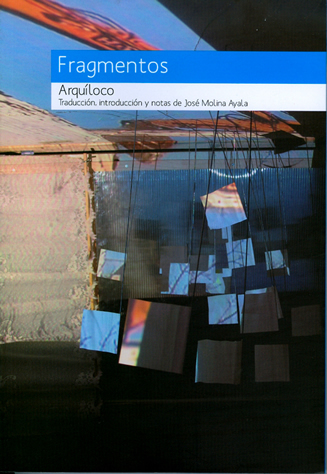What do you think?
Rate this book


146 pages, Paperback
First published January 1, 1964
There are other shields to be had
But not under the spear-hail
of an artillery attack,
In the hot work of slaughtering,
Among the dry racket of the javelins,
Neither seeing or hearing.
The highly polished minds
of accomplished frauds
What breaks me,
Young friend,
Is tasteless desire,
Dead iambics,
Boring dinners.
A hummock
Of a bulge
At the crotch,
That diner
on eyeless eels.
The good-natured need no cutlery
In their vocabulary.